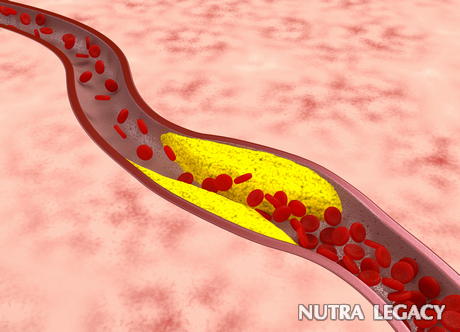All You Need to Know about Coronary Atherosclerosis

- We all know that high cholesterol is bad. It can lead to artery plaque
- Coronary atherosclerosis is a condition where there are fatty deposits inside your arteries. This makes the arteries harden and could cause a blood clot
- If you control your blood pressure it could help you avoid this condition
Nowadays most of us know that high cholesterol is bad for us. We may even know that it leads to something called “hardening of the arteries” in laymen’s terms. But most of us don’t truly understand what this means or why it is so dangerous to our health. For this reason, understanding as much as possible about coronary atherosclerosis is important if we want to lead a healthy, long life.
The Beginnings of Coronary Atherosclerosis
The term “atherosclerosis” is a combination of Greek words that meant “paste” and “hardness.” When you realize that the condition involves the build-up of fatty deposits inside your arteries, the origin begins to make pretty good sense.
Much of the build-up comes from cholesterol deposits. When we have too much cholesterol in the body, what can’t be used is either removed from our bodies via HDL (high density lipoproteins) or taken to our arteries by LDL (low density lipoproteins). Over time, the cholesterol combines with other substances passing through, including waste products from our cells and calcium. Slowly, this mixture starts to harden and becomes plaque.
When the plaque develops, it narrows the passages for the blood. It also makes the arteries harder and more brittle. Sometimes the plaque can break off and form a blood clot that can stop blood from reaching important parts of our bodies. This can cause a stroke, a heart attack, and even gangrene in our limbs depending on which arteries are blocked by the clot.
Coronary Atherosclerosis Statistics
Many people already have atherosclerosis beginning in their bodies but do not realize it. A study completed in 2001 found that more than half of all participants had some level of coronary atherosclerosis present in their bodies. In the participants who were over the age of 50, the percentage skyrocketed to 85%. Even a mind-boggling 17% of teenagers had some atherosclerosis in their bodies already.
Because of improved medical treatments for these problems and their consequences, the rate of death from coronary atherosclerosis has decreased during the last three decades. Unfortunately, that still leaves about 900,000 people who will die every year as a result of this condition and its complications.
Treating Coronary Atherosclerosis
As with many health conditions, our lifestyle has a big impact on their development and treatment. Even if you do have some coronary atherosclerosis in your body now, you can make changes, such as increasing your activity levels and lowering your cholesterol, that will prevent further build-up.
Your physician may also decide to use medications to help treat your condition. Blood thinners and anti-platelet drugs are often used if your physician fears you may be at risk for a blockage. He or she may also prescribe cholesterol-lowering medications which will reduce additional build-up. Controlling blood pressure, diabetes, and other health conditions can also slow down the development of this condition.
If you have a severe case of atherosclerosis or if you have already had a heart attack or stroke as a result, your physician may need to do surgery. Angioplasty – widening the artery – and bypass surgery are two of the most common options.
To prevent coronary atherosclerosis and other blood pressure issues, there are natural supplements like Cardio Smartto help you maintain normal blood pressure like you would if you were exercising and eating right.
The information supplied in this article is not to be considered as medical advice and is for educational purposes only.
|
One Response to “All You Need to Know about Coronary Atherosclerosis” | ||||||||||||||





 17 Nov 2008
17 Nov 2008
The statistics provided here are nothing short of frightening! 17 percent of teenagers have plaque in their arteries? What is our nation coming to? We need to get off our butts and exercise, and stop eating all that junk before it's too late, instead of filling ourselves up with blood thinners and statins!February 3rd, 2011 at 5:48 am